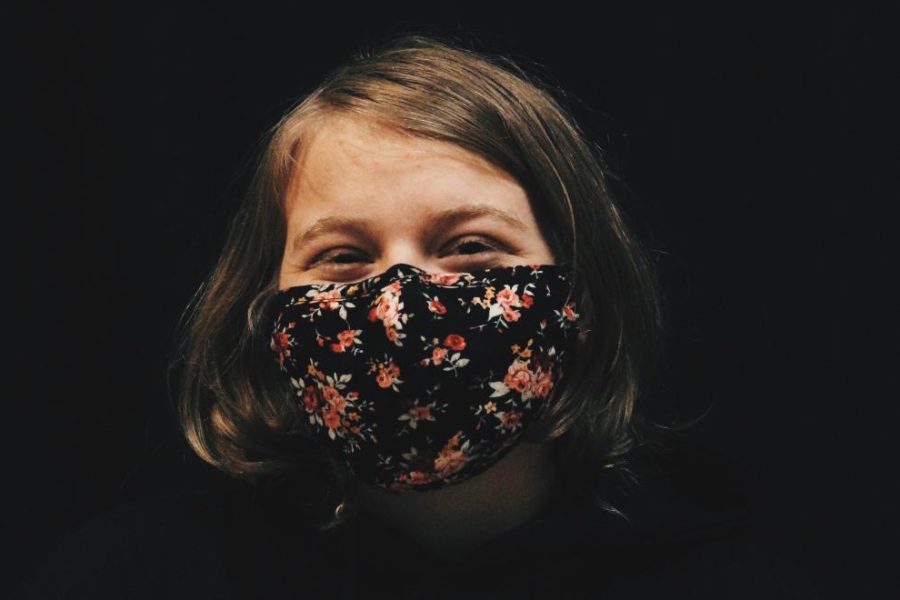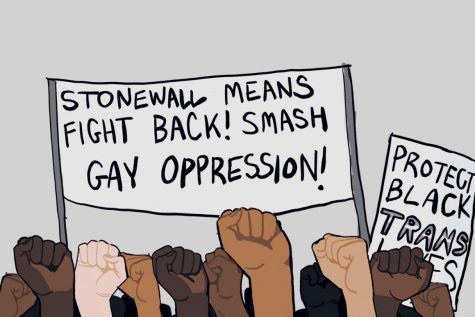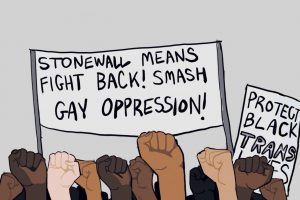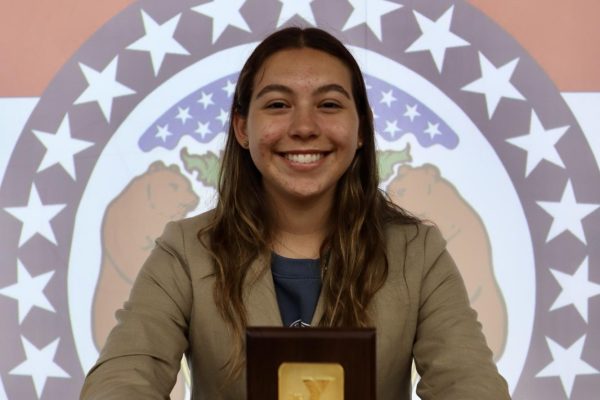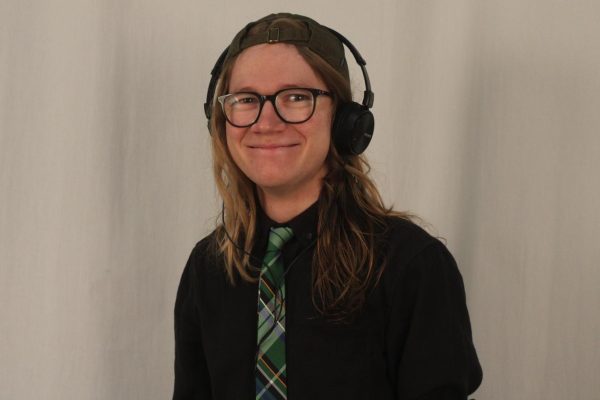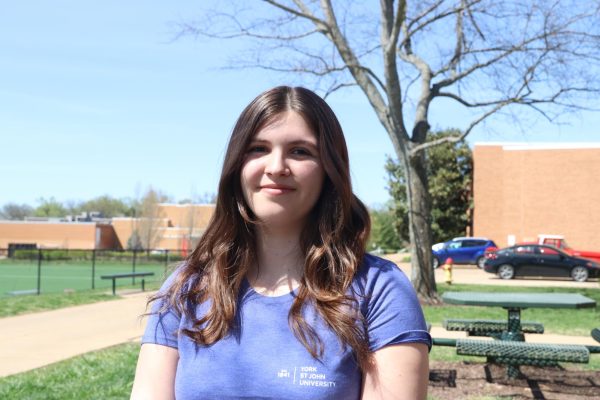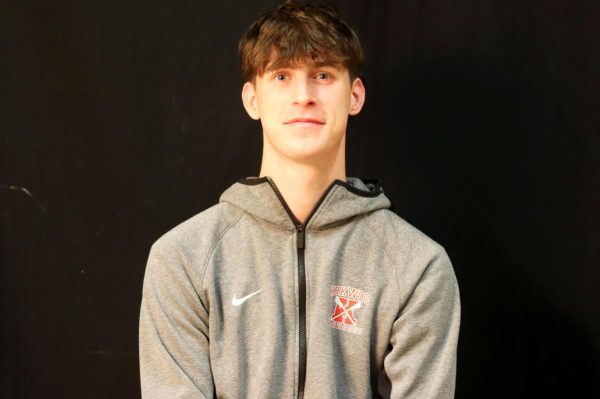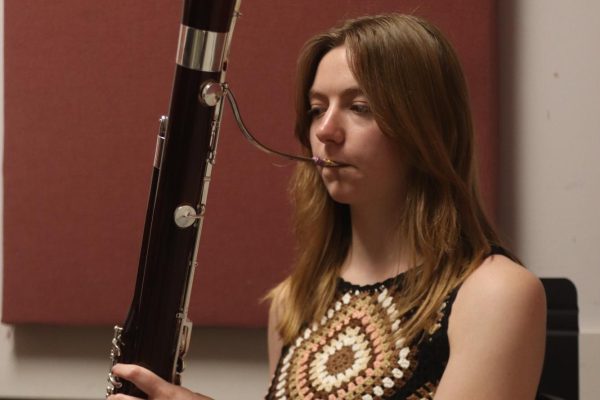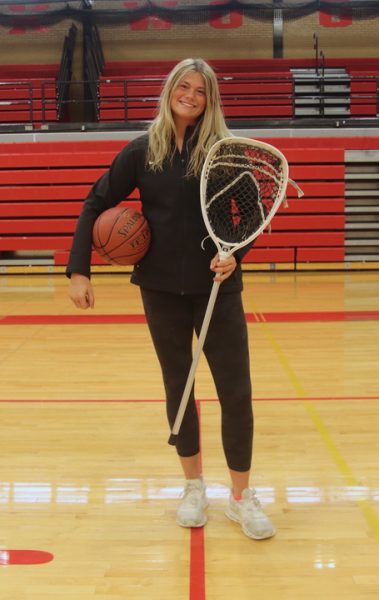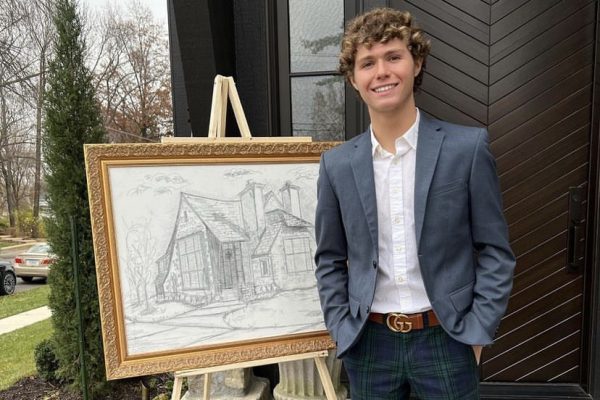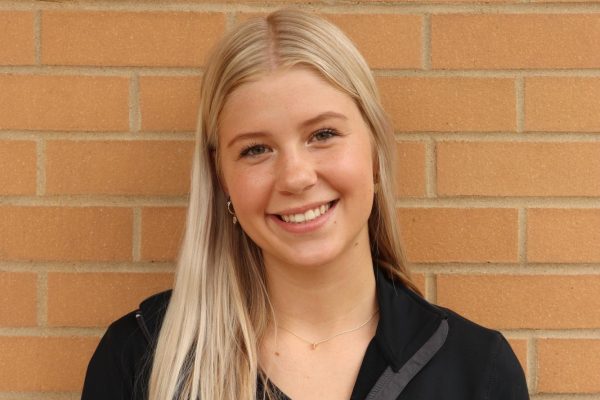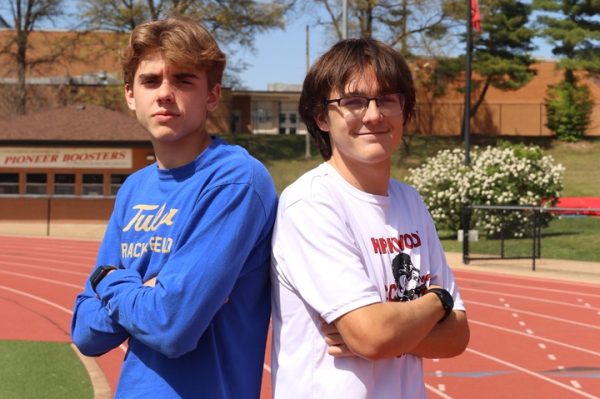Asexual, not atypical
Cameron McCaslin, junior, is the president of the GSA and identifies as asexual and queer.
Sometimes it’s not a lightbulb moment.
“I’ve known I was asexual for a year or two.” Cameron McCaslin junior said, who uses ey/em pronouns, is the president of the Gender Sexuality Alliance (GSA) club, and ey identifies as aromantic, asexual and queer. “I knew how I felt, then one day I realized there was a word for [it].”
“I define asexuality and aromanticism as being a different experience than what is usual in terms of sex and romantic feelings,” McCaslin said. “I hardly ever experience romantic or sexual attraction, but that’s not the only way to experience it. There is a spectrum [of asexuality] for a reason.”
The inverse of asexuality is allosexuality, which is when someone experiences sexual attraction of any kind, and like asexuality, is an umbrella term. It encompanies a range of feelings and experiences, but it is not ‘normal’, just one way to experience sexuality.
“There are many different ways people can feel while still using the same word to describe themselves, and [to support asexual people] being accepting of that, which [is something] a lot of people, even people in the LGBTQ community, miss.” — Cameron McCaslin
McCaslin said, asexual people are repulsed by the idea of sex and there is no circumstance in which they would consider having sex. Others may experience sexual attraction occasionally or only under specific circumstances.
“There are many different ways people can feel while still using the same word to describe themselves, and [to support asexual people] being accepting of that,” McCaslin said. “Which [is something] a lot of people, even people in the LGBTQ community, miss.”
McCaslin spends a lot of eir time organizing events for the GSA, like the Soldari-tea party and Day of Silence. McCaslin said ey also take it upon emselves to make new members feel welcome the GSA a place where students can explore their identities.
“Ey was the most active, the most present, ey was there every time,” Dominic Pioter, advisor for the GSA, said. “It was a natural fit. Cameron is just that presence that brings everyone together. Ey’re very comfortable with who ey are.”
For McCaslin, that presence is an important part of eir role as GSA president. Sarah Martin, sophomore, is another member of GSA who said she appreciates what McCaslin brings to the club. She joined the GSA a few months ago, right after transferring to KHS.
“The day I joined,” Martin said, “ey came up to me like ‘Hey how are you!’ and got to know me, it made me feel welcome.”
McCaslin takes eir job seriously. Even beyond the GSA, ey wants to be a welcoming presence in the school for everyone.
“I’m out to most people, especially at school,” McCaslin said. “It’s important to me that people see I am an upperclassman who is out as queer and you are allowed to be out without being scared.”
“Communication is important,” McCaslin said, in regards to allosexuals in relationships with asexuals. “For both friendships and relationships.
— Cameron McCaslin
McCaslin has surrounded emselves with a queer community in eir life that accepts eir identity and offers support. Ey has learned ways of filtering these relationships to ensure a safe space.
“Communication is important,” McCaslin said, in regards to allosexuals in relationships with asexuals. “For both friendships and relationships. Talk to them about what level, if anything, that they are comfortable talking about or being around [sexual things.]”
More young people than ever are coming out as LGBTQ+. According to a Gallup poll, 1 in 6 adults in Gen Z now identify as a part of the LGBTQ+ community. As opposed to 1 in 10 Millennials and 1 in 25 people in Generation X.
“If you’re saying, ‘I didn’t even know about [asexuality],’ then do something,” Pioter said. “Learn about it. Oftentimes we expect our students to teach us about themselves and their ideas. But I find that’s unfair. It’s not their job to teach about the LGBTQ community. It’s my job to learn these things.”
Your donation will support the student journalists of Kirkwood High School. Your contribution will allow us to purchase equipment and cover our annual website hosting costs.
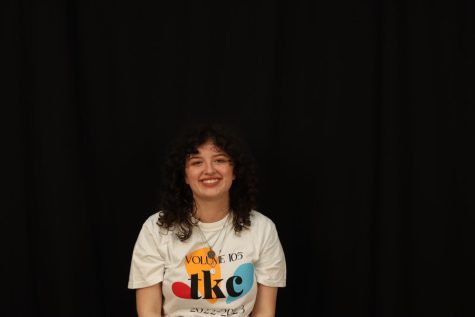
She/Her
Hobbies and Interests: journaling, driving badly, listening to music
Favorite song: Tom's Diner by Suzanne Vega
Favorite Quote: "We...
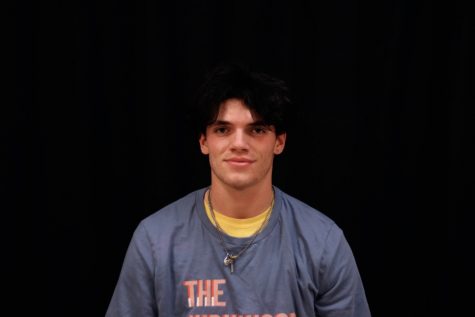
he/him
Hobbies and Interests: Being outside
Favorite Song: 4 your eyez only - j. Cole
Favorite Quote: “Loving you is complicated.” -Kendrick...


